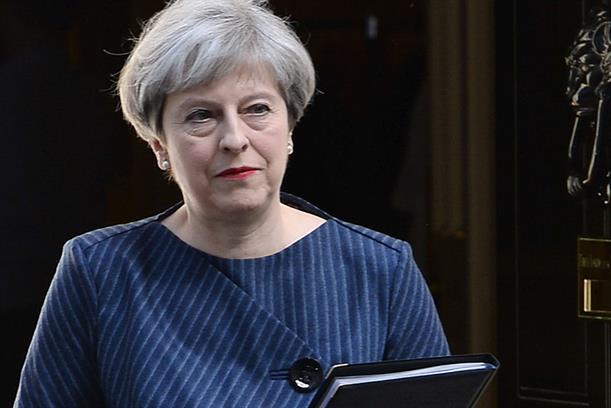Labour won under-45s by nearly 30 points at the general election, so it is no surprise that debate at this week's Tory conference focused on one thing: how to win back younger voters.As you might expect at a gathering of people whose average age is , the question was better than the answers.
Political strategies that unlock whole new groups of voters have always been brand strategies. Whether it is New Labour and the New Democrats positioning against their party’s own past; or Margaret Thatcher moving the Tories from patrician conservatism to embrace working class aspiration; parties that have transformed their appeal have transformed a core part of their own identity to do it.
The prime minister’s efforts to use her speech to initiate a brand shift were derailed by a sore throat and a "comedian". But even if her speech had landed perfectly, it could never have been enough because there was little else in Manchester that showed the Tory party re-inventing itself. Instead, attention focused on two much more tactical themes: policy and social media.
The Tories presented plans to freeze tuition fees – an idea which does little to address concerns of young people paying £9,000 a year, but does a lot to highlight Labour’s more generous offer. It is like Burger King deciding to take on the Big Mac, but finding they haven’t got quite enough meat.
The idea that social media is the key to the youth vote is more pernicious because it is half true. No combination of successful jousts with John Humphries and op-eds in The Telegraph is going to win over millennials. The Tory party’s septuagenarian army is going to have to get its head around Instagram and, as the retired colonels in Berkshire say, "that’s that".
The trouble, as the Tory Instagram , is that the Tories are not set up to do it in the right way.
Since Donald Trump’s election victory, the zeitgeisty view is that social media triumph comes through psychographic models, big data analytics and targeted ads. The fact is that the firm most often credited for Trump’s social media strategy said they "did not have the opportunity to dive deeply into our psychographic offering", and key claims have been called a by Trump’s former chief digital officer, have not been enough to dent a good story. The credulous bilge written about Trump’s operation is – the same was said about Obama’s machine.
Of course, analytics and targeting are important and techniques are advancing, but the heart of good social strategy is much less like firing a laser and more like building a city. The job is to create the infrastructure that allows people to create their own niche and connect with others.
That kind of facilitative social strategy makes fundamentally different calls on creativity than traditional political communications. As Dave Henderson of Atomic London showed at last night’s Young Creative Council event at Edelman, the history of great political advertising involves a series of graphic treatments of disembodied heads. The creativity was in the wit of the copy and the detail of the art direction.
The future is different.
Creativity is shifting from advertising ideas to communications ideas which enable audiences to become part of your community. Grime for Corbyn; Momentum’s quickly made, quickly discarded memes and even that anti-Semitic frog used by the American alt-right are all examples of creative ideas that can be appropriated and shared.
The key is that these are messages that are imminent in culture, not fired at individuals. They are ideas people can belong to as well as agree with. They are authentic, and so build trust between voters and the cause they stand for.
Building trust is key, because without it policies – or propositions – that look good in isolation, fail to inspire their target audience. They can be well known, they can be liked, but they are not believed.
The Tory challenge is much deeper than designing policies or manipulating Facebook’s algorithms. To reach out to younger voters, they need to blend into culture so their claims become authentic earn trust. While Ruth Davidson remains in Scotland, that feels some way off.
James Morris is a senior director at Edelman and has advised political parties on campaigns in Europe, the US and Africa


